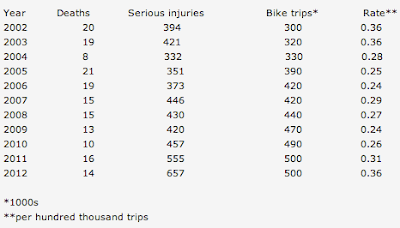
One Minute With Kim Sung Su - Director of The Flu
The Flu is South Korea’s first viral epidemic blockbuster, set to sweep across the UK this month. A chillingly and gleefully told story of an infectious disease with a 100% fatality rate and a city thrown in chaos.”
Please describe yourself in 3 words.
Wishing, hoping, playing.
What inspired you to become a filmmaker?
When I was young I dreamt of a different world and a different place and I think being a film director fulfilled that.
Can you describe The Flu in one sentence?
We are a cruel tribe.
What was your strangest experience in making The Flu?
In the stadium we filmed a huge scene of digging up mass graves and mass holes and, although we did receive the help of cgi effects, we actually did use a real stadium and dug out a real hole. Once it was filled with fake corpses I went on set to see it. I remember that moment very clearly and vividly. It reminded me of the foot and mouth outbreak, a real life incident in Korea when we were burying pigs alive, and I remember thinking: this is the scene that I wanted, and that sense of satisfaction of the director, and also a kind of element of horror. It was a real sense of an electrifying moment for me, a nighttime moment I remember very clearly.
What’s the best advice you ever got?
I tend to shoot a lot of action films that can be very demanding and difficult. As a director you can’t easily say “I’m tired” because nobody ever listens to you anyway, so when things get very difficult or tough going, I like to encourage myself or tell myself “this too will pass.”
What do you love and hate most about London?
In London it’s the same thing for both things: Fish and chips.
The Flu is released in UK cinemas November 22nd.
Image of Kim Sung-Su Copyright Gavin Mecaniques.
19 Nov 2013

Six stages of being aspirationally unemployed in London
If you find yourself young and unemployed in London, here, from bitter personal experience, is how the job search might go.
18 Nov 2013

Factcheck: Is London really getting safer for cyclists?
Five cyclists have died in London in the past nine days. This is tragic and shows there is still a lot to be done to make our streets safe.
But does it mean that cycling in the capital is becoming more dangerous overall? Let’s look at the facts.
The number of cycling fatalities in London remains relatively low. There were 16 deaths in 2011, 14 deaths last year and there have been 13 so far this year.
The longer term trend is harder to read with between eight and 21 deaths of cyclists every year since 2000.
But deaths are probably not the best indicators of safety. The vast majority of collisions do not result in fatalities, so let’s look at those figures instead.
Well in 2002 there were 414 cyclists either killed or seriously injured in the capital. Ten years later that number rose to 671.
That’s a big rise. But does this mean that cycling has got much more dangerous in London? Well yes and no.
Because over those ten years the number of cycle trips has also risen. So while in 2002 there were just 109.5 million cycle trips a year in London, by 2009 that had risen to 171.5.
Therefore the rate of cycle casualties actually fell significantly between 2002 and 2009 from 0.36 casualties per 100,000 cycle trips in 2002 to just 0.24 casualties per 100,000 cycle trips in 2009.
But the story doesn’t end there, because for some reason, the number of serious and fatal casualties has gone up again in the past couple of years.
And while the official figures for 2012 have not been published, City Hall sources tell me that cycle trips have also stayed basically the same as they were in 2011.
Taken together, this means that the rate of deaths and serious injuries has risen again in London to the same level it was way back in 2002.
Here’s all the figures from TfL so you can see what I mean.

So why the big rise in accidents in the past few years? Is it a spike, or is it because things like the cycle superhighways and bike hire scheme have encouraged a lot more inexperienced riders on to the road?
Either way, it is politically a very dangerous situation for TfL and the Mayor.
Boris Johnson promised to make the “cycling revolution” the big cause of his mayoralty and this has emboldened a new generation of campaigners to hold him to his word.
Boris’s repeated response has been to claim that cycling in London is getting much safer overall. As the above figures show this is not quite true. But ultimately this is not really about statistics.
As Ken Livingstone found with the spate of stabbings in the run up to the 2008 elections, statistics mean very little when people are dying on the streets.
Cycle safety has become a big political issue and will get much bigger after the tragic events of the past two weeks.
The hundreds of people turning up for candlelight vigils every time another cyclist is killed will continue to grow, as will their call for something to be done.
That something will take time, but telling cyclists to just be a bit more careful just isn’t going to cut it.
14 Nov 2013

One Minute With Destin Daniel Cretton - Director of Short Term 12
Critically acclaimed and winner of two SXSW awards – Short Term 12 – is Destin Daniel Cretton’s debut feature, telling the story of Grace (Brie Larson), a leader in a US foster-care home.
Please describe yourself in 3 words.
Laidback, Pineapple, Warmwater.
What inspired you to become a filmmaker?
Watching Innerspace in 1987, the first film I saw in a movie theatre in Maui, Hawaii, where I grew up.
What was your path?
A very long one. I didn’t know I wanted to do this until I graduated from college and then I started making shorts, and got addicted.
What was Short Term 12’s origin?
It’s taken from my first job out of college. I worked at a home for at-risk teenagers for about 2 years and that experience stuck with me. 3 years later I started making a short film about it.
What was your best experience?
Actually it’s scene that got cut from the movie, a therapy scene featuring Grace (played by Brie Larson). In the movie there’s about 40 seconds of it, but it was actually 10 minutes long when we shot it and it was one of the most emotionally powerful experiences I’ve had as a director. Brie and I looked at it as something we had to go through, in order to inform a lot of other things that happen in the movie.
Once we got to that part [in editing] it wasn’t needed because you already knew so much from the story being told. As beautiful as it is, it’s a great DVD extra. [Laughs]. We were constantly seeing what we could get rid of: in writing, in performance, and editing. Seeing how little we needed, in order to convey the story and always asking “is this too much?”. I learned a lot.
Your influences on this movie?
It’s hard to say. Filmmaking is a hard thing to learn and I’ll probably continue to learn for the rest of my life. Everything about making movies means you want to show off, you want to show people your art, or that you can come up with a cool shot, but we had to approach it as selflessly as possible and thank goodness that managed to happen.
Best advice you ever got?
Not to believe in most of the advice that people give you. Most of the time it’s right for them, but not for you.
What do you love and hate most about London?
I love the history, I hate the traffic, I love the tube here.
What’s next?
A beautiful and tragic snapshot of one of the most interesting American families, basically exploring the balance of s_ and beauty that every human experience has.
Last chance: did you really mean to say Innerspace?
Oh yeah! But I was raised on blockbusters, there was no independent cinema in the Hawaiian islands as a kid. Movie making is all about magic tricks. Whether you’re making a small indie drama set in a foster home, or it’s Martin Short flying around in a little spaceship inside a human body. You’re still trying to trick people into believing in a world you’re creating.
Short Term 12 is on general release this November. Read more on the film’s own website and Facebook
Image of Destin Daniel Cretton Copyright Gavin Mecaniques.
06 Nov 2013

The five emotional stages of becoming a Londoner. What stage are you at?
The Kübler-Ross model for facing the reality of death holds that someone diagnosed with a terminal illness will experience five stages of emotional reaction: denial, anger, bargaining, depression and acceptance. Ever since Homer Simpson ran through all five stages in 10 seconds flat, this serious, scientific model has misused in idiotic, ill-informed pop culture parodies by unoriginal, second-rate humour pedlars.
So without further ado, let me introduce you to Snipe’s wholly original, rigorously researched, five stages of becoming a Londoner model!
04 Nov 2013

The "hollowing out" of inner London isn't quite what it seems
The city is getting fuller, not hollowing out, almost everywhere.
30 Oct 2013

Call this a storm? The London tornado of 1091, that was a storm
922 years ago to the week, we had a biggie.
28 Oct 2013

Random Interview: Abigail Mortimer, Greenpeace Volunteer, Activist, and Campaigner
I received an email from a Greenpeace mail-out asking people to join them on a peaceful protest outside a Southwark Shell station. It was there I met the protest organiser, Abigail, a volunteer Greenpeace activist and campaigner.
22 Oct 2013

London housing data and comment bulletin - October 2013
Pulling together up-to-date data, news and comment about housing and planning in London.
21 Oct 2013
Snipe Highlights
Some popular articles from past years
- The best church names in London, and where they come from
- London has chosen its mayor, but why can’t it choose its own media?
- Only 16 commuters touch in to Emirates Air Line, figures reveal
- Nice map of London's fruit trees shows you where to pick free food
- Random Interview: Eileen Conn, co-ordinator of Peckham Vision
- Summer Camp: Roll out those lazy, hazy, crazy days
- Number of people using Thames cable car plunges
- Punk brewery just as sexist and homophobic as the industry they rail against
- 9 poems about London: one for each of your moods
- Could red kites be London's next big nature success story?
© 2009-2025 Snipe London.
